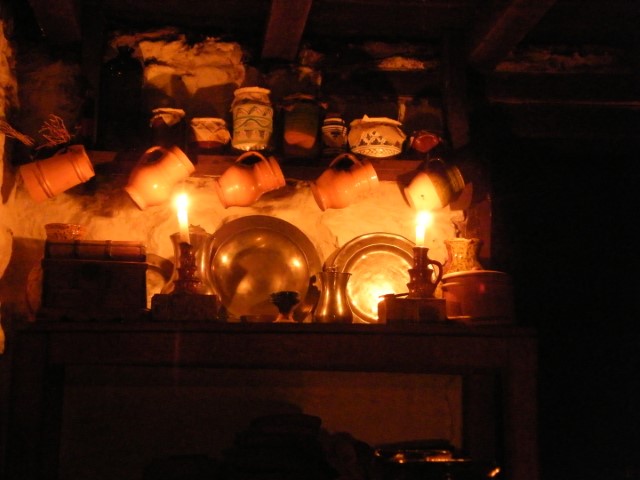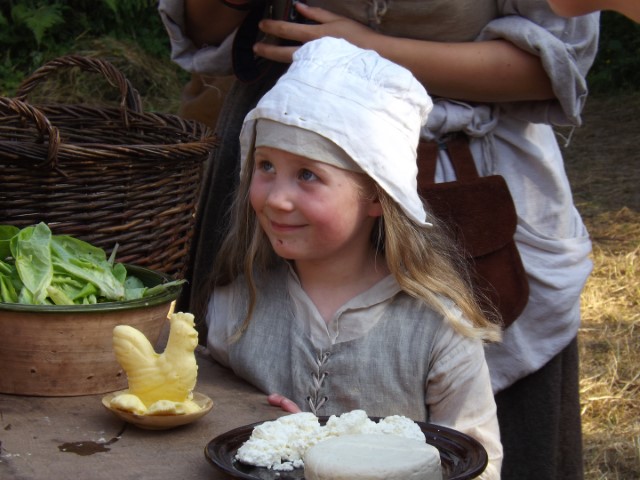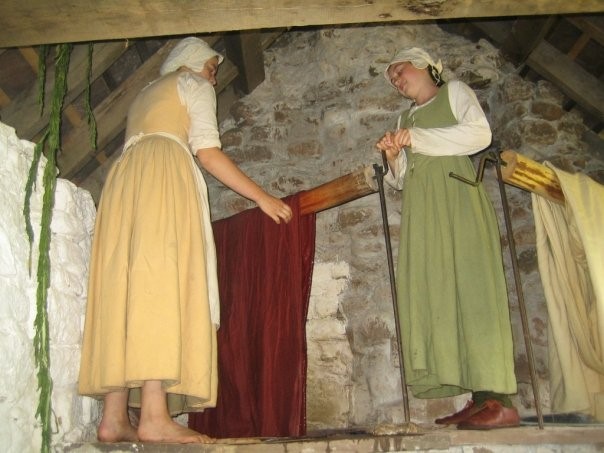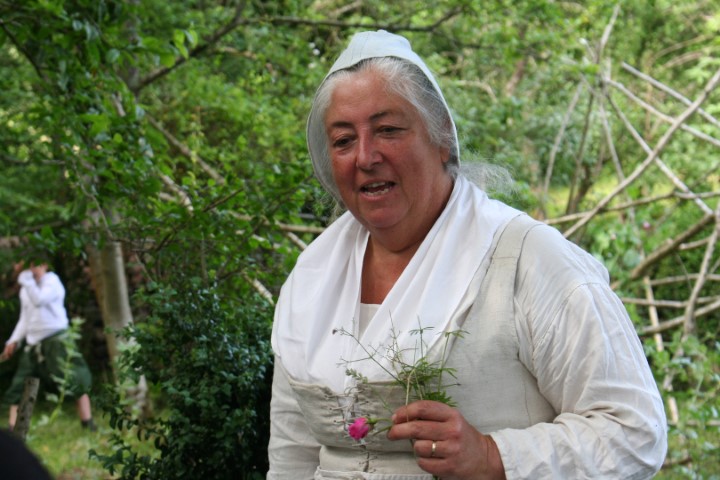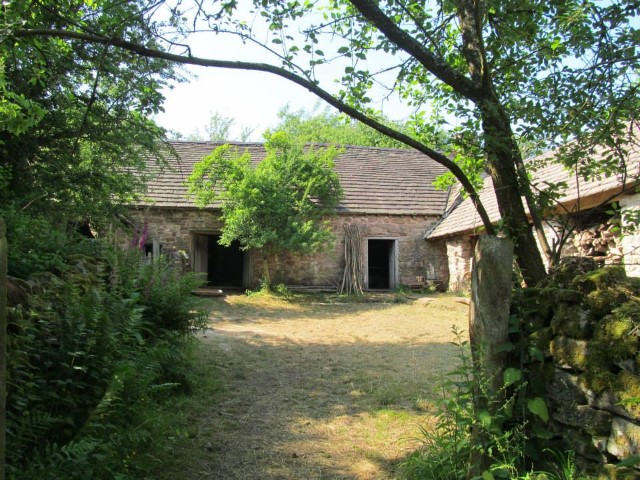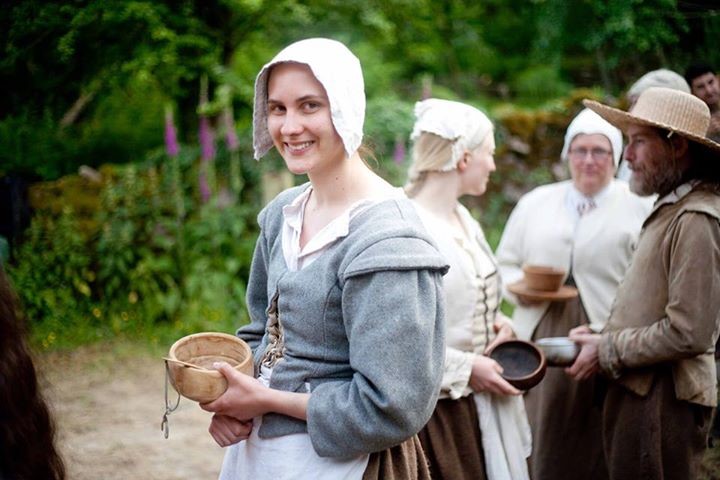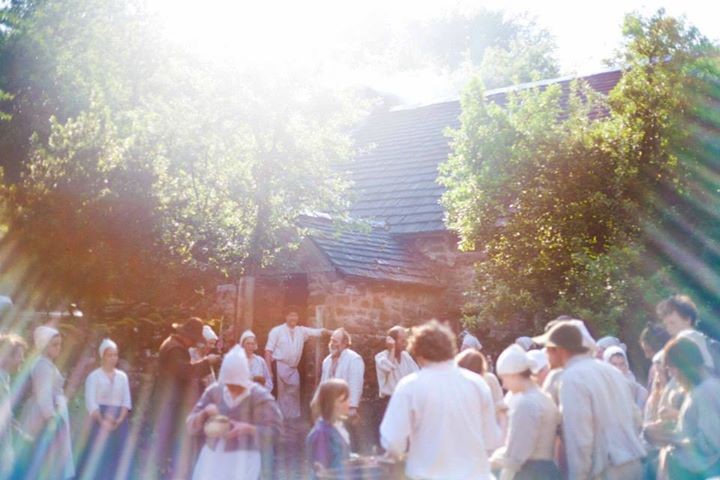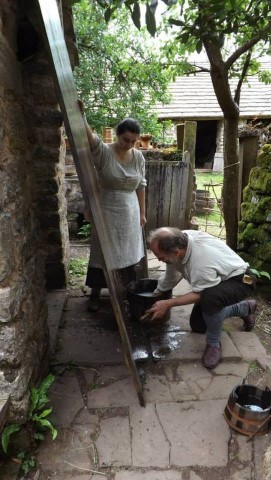The development of Church,
state and society in Britain 1509-1745.
The living history we
offer insight into the development of society during this period. This is through the construction of a
miicrocosm of society; we also make reference to the impact of the state and the Church on the daily
lives of the people whose lives we are representing.
Society, economy
and culture across the period: for example, work and leisure in town and
country,
Bullace Hill shows the rural life experienced by the vast
majority of the poulation in all its complexities. Economic and social relationships between masters and
servants, the patterns of trade and manufacture in England's key textile industries, and recreations
such as music, dance and games are all encountered.
Our Living History allows students to draw conclusions and make comparisons
about the way we live now and the way they lived then. We often encourage these conclusions by asking
the students about their own lives and pointing out the differences while in character. Allowing the
differences and similarities to be really noted by the students.
The characters of the living history can refer to what would have been
their own personal stories regarding the Civil War and how it is affecting their lives. Please be sure
to mention when booking that you are interested in the Stuarts rather than the Tudors.
Britain’s changing
landscape from the Iron Age to the present
Bullace Hill provides a
snapshot of the English landscape before the agricultural revolution of the 18th century. The formation
of this landscape is a result of the activities that can be seen being carried out during the tour.
A study
of an aspect of social history,
Our living history gives an insight into the lives of common folk and farmers of the Tudor and Stuart
periods. These everyday aspects such as washing and cooking provide students with elements
students can
readily identify with.
Changes in an
aspect of social history
Our living history gives an insight into the lives of common folk and farmers of the Tudor and Stuart
periods. This can be contrasted with the students everyday lives in the 21st century or with other
periods of history. These everyday aspects such as washing and cooking provide students with elements
they can readily identify with.
Studying the Tudor and Stuart period extends pupils' knowledge
beyond 1066.
The English Civil War was a turning point in British history as the country was left without a King for years afterward! Bullace Hill Living History covers this period and gives pupils a hands on experience of life in the Civil War period.
Key Stage 3
Key Stage 2
For those schools constrained by the National Curriculum we have identified some of the main areas
where the Bullace Hill Living History will assist with achieving the curriculum objectives.
